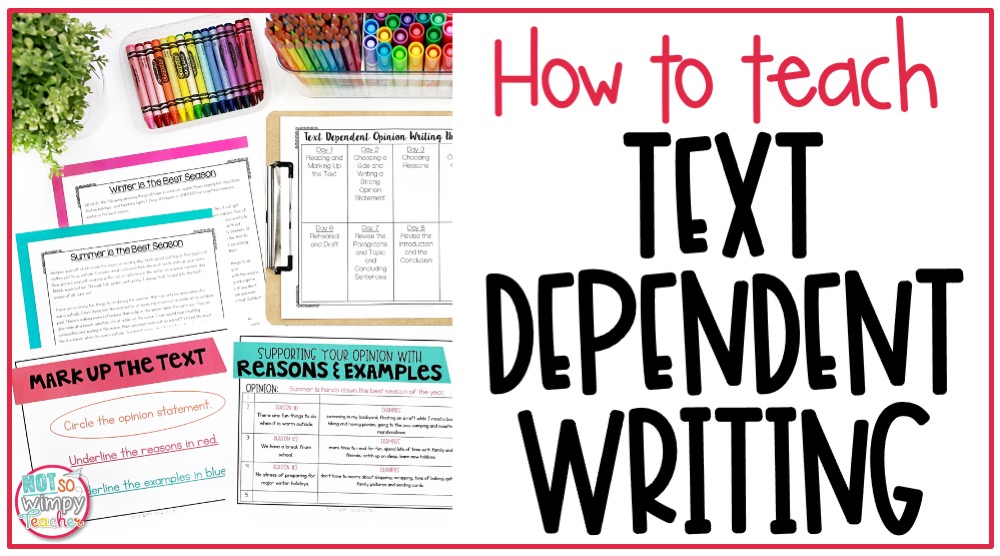
I love teaching writing. And I am a big fan of writing workshop. So it’s no surprise that one of the most common questions I get asked from teachers is, “How do I teach text dependent writing?”
There is a lot of pressure on teachers to help students develop this skill. In fact, I‘m being kind. Many teachers tell me that their admin expects students to master text dependent writing before testing season begins. Even students in third grade.
That’s bonkers! Text dependent writing is a challenging skill, and it takes time to develop. But I know it’s all about those test scores. In many classrooms, the only writing that students ever do is reading responses. It’s all about memorizing acronyms and practicing for test prompts.
Is it any wonder that kids don’t like writing?
Luckily, there are lots of ways to teach text dependent writing skills in a developmentally appropriate way.
Give your students lots of opportunities to write across genres
The best way to increase writing test scores is to make writing fun and enjoyable. The more kids like writing, the more they will write. And the more they write, the better they will perform on standardized tests.
While text dependent writing is not many kids’ favorite activity, there are lots of other writing tasks that they really do enjoy: personal narratives, opinion essays, informational reports and fiction. The great news is that practicing writing in all of these genres helps kids become better writers and perform better on text dependent writing prompts.
The skills that students learn in other genres are directly applicable to text dependent writing tasks. Think of the lessons you teach during writing workshop:
- Crafting interesting leads
- Using descriptive words
- Adding details
- Writing strong opinions
- Including topic sentences
- Supporting claims with examples
- Using transitions
- Writing a solid conclusion
Every one of these skills can be applied to a text dependent writing assignment. And if your students know how to do these things confidently, they will be more prepared for testing. All writing assignments will help students become better writers, so pick some that kids really love.
Text dependent writing is a reading skill
I recommend that you spend 30 to 45 minutes writing most days of the week and that you teach writing in units. My writing bundles come with ready-to-use lesson plans for four genres: personal narrative, informational report, opinion essay, and fiction narrative. Notice I didn’t include text dependent writing in that list.
That’s because text dependent writing is really a reading skill. We are asking kids to read a passage closely, understand that passage at a high level, and then use the text they read to support their answers.
Text dependent writing should be taught during your reading block. It is an extension of close reading.
Select the right reading passages
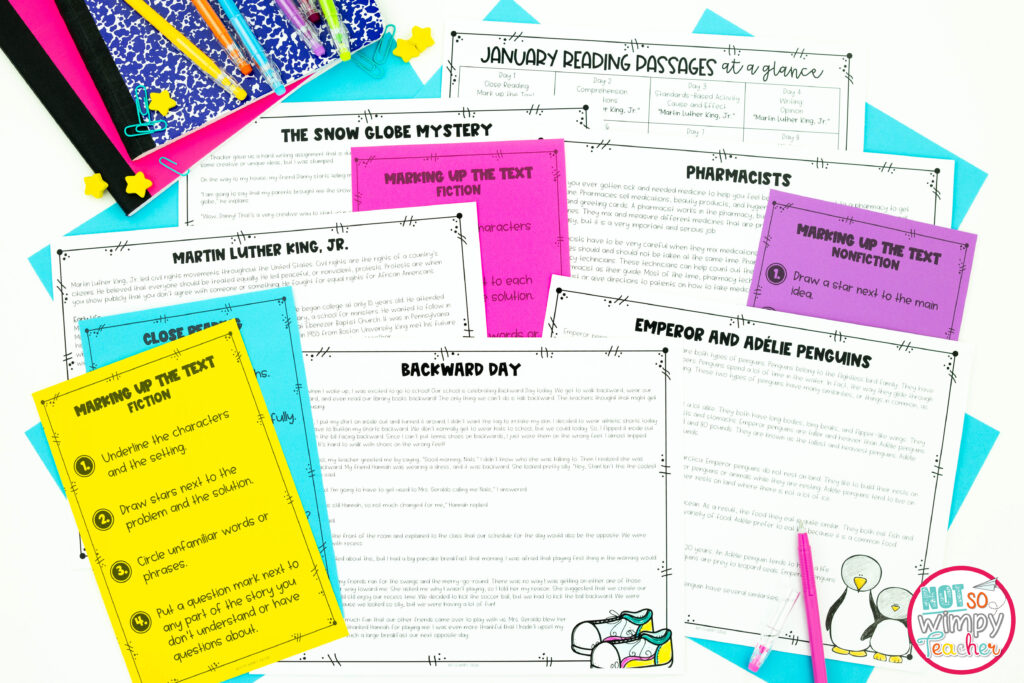
Helping students develop text dependent writing skills all starts with selecting the right reading passage. You want a reading passage that is on grade level and slightly challenging. If the passage is too complex, the students will struggle with basic comprehension and won’t be able to dive deep into the meaning of the passage. A passage that is too easy will be boring and will not hold their interest.
It’s also important to select passages that students care about. Seasonal passages and kid-friendly topics help keep kids engaged in reading. When students are engaged, they will be willing to work harder and be more persistent with challenging topics.
I’ve created an entire year of reading comprehension passages for grades 3 and 4 based on kid-friendly topics like football, gingerbread houses, penguins, pets, and hurricanes (just to name a few–there are 60 passages in all).
These passages are designed to be used over four days and come with challenging comprehension questions, extension activities to deepen understanding, and reading response activities. They are a great way to practice close reading and text dependent writing skills.
Explicitly teach reading strategies
Once you’ve selected the right passages, it is important to explicitly teach reading strategies that will help students discern meaning and do well on text dependent writing prompts.
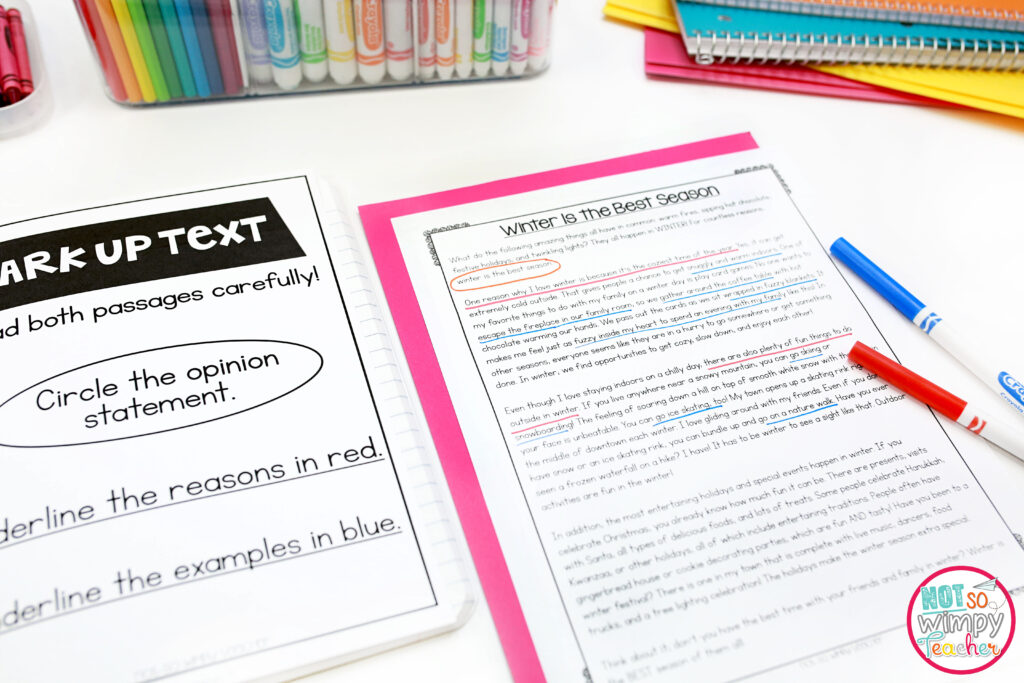
You will want to teach students how to:
- read a passage
- mark up a passage
- restate the question
- find evidence
- explain the evidence
These skills can be tricky for students. It is important to model how to do these things for your class. Think aloud as you read a passage and mark it up.
Model how you would approach a text dependent writing prompt. Demonstrate how to start your answer by restating the question. Show students how you go back to the text to look for evidence to support your answer. Think aloud as you explain in writing how that evidence supports your answer. Be sure to give students lots of opportunities to practice this as well.
The reading passages mentioned above include anchor charts and student printables to help students learn these strategies. They also provide lots of opportunities for practice. Need more ideas for using reading passages with students? Check out my Four Ways to Use Reading Passages in the Classroom blog post!
Break up lessons
Fitting everything into your school day can be tricky. And since text dependent writing is a challenging skill, it often takes a bit of time for students to become comfortable using these strategies.
If you are pressed for time, don’t be afraid to break up the lessons. You can read the passages during your reading lock and respond to the writing prompt during your writing time.
This strategy will also help break up a tedious process for kids and keep them fresh.
Remember, students don’t have long attention spans. So even if you have an hour to read and respond to one text dependent writing prompt, you might not want to do so. Even with student-friendly topics, kids will lose focus if you ask them to work on one thing for too long.
Differentiate in small groups
A great way to help kids become more confident at responding to text dependent writing prompts is to make sure every student is getting the right level of support. You can place reading passages and writing prompts in your reading centers and use them with small guided reading groups.
This allows you to tailor your instruction to student needs. More advanced students might have no problem finding text evidence to support their answers and want to spend more time crafting topic sentences and smooth transitions. Lower students might need extra support simply figuring out how the text can provide the evidence they need.
Small groups are a great way to differentiate text dependent writing lessons.
Text Dependent Test Prep Writing Bundle
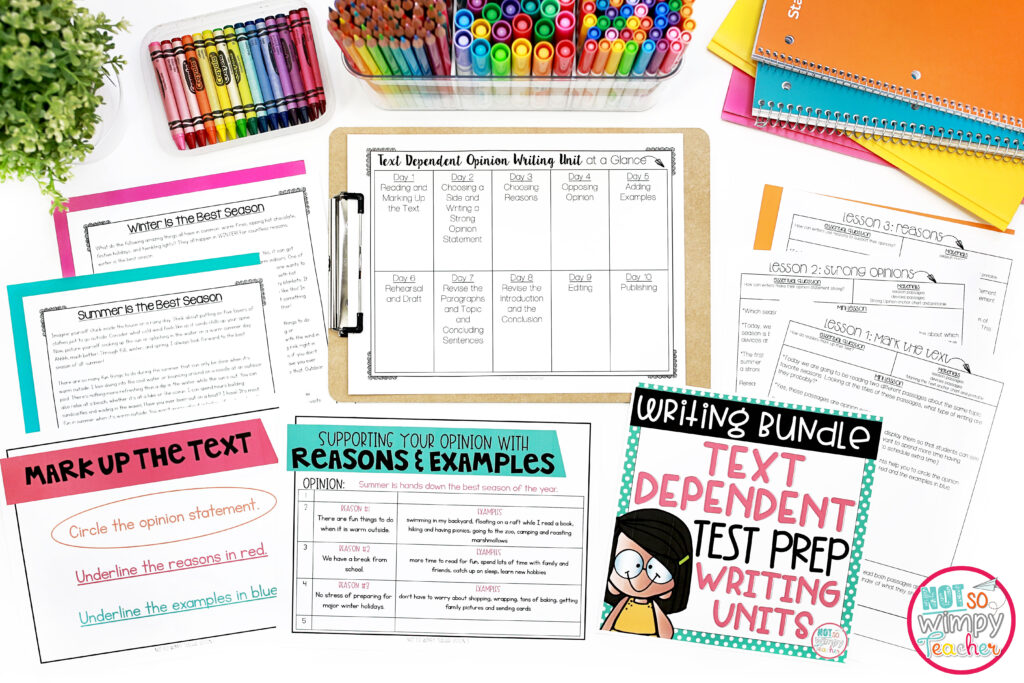
Looking for more practice to help your students develop text dependent writing skills? I’ve got you covered.
My text dependent test prep writing bundle comes with 6 writing mini units designed to help your students become confident at responding to text dependent writing prompts so they can perform well on standardized tests.
This bundle includes the following units:
- Reading Response Essay Writing
- Text Dependent Opinion Writing Essay Unit
- Compare and Contrast Nonfiction Reading Response Essay Writing Unit
- Compare and Contrast Fiction Reading Response Essay Writing Unit
- Fiction Summary Reading Response Writing Unit
- Nonfiction Summary Reading Response Writing Unit
Each unit includes detailed teacher directions and suggestions for simple implementation, 10 days of lesson plans with materials, mini-lessons, writing tasks, ideas for sharing, original mentor text passages, anchor charts, rubrics, and more.
Teachers find these units super helpful in prepping for high stakes tests:
“Great resource for teaching written response for state testing. I love the interactive nature and the natural flow of the ‘I do, We do, you do.’” Delaney D.
“This was by far one of the best things I have ever used to get my students ready for their state test! It was awesome! I highly recommend it!” – Ruth N.
“I LOVE how the lessons really break down the reading response process down into small bite-size chunks. This has been really helpful in giving explicit instruction in how to write a thorough response.” – Kara G.
Shop This Post
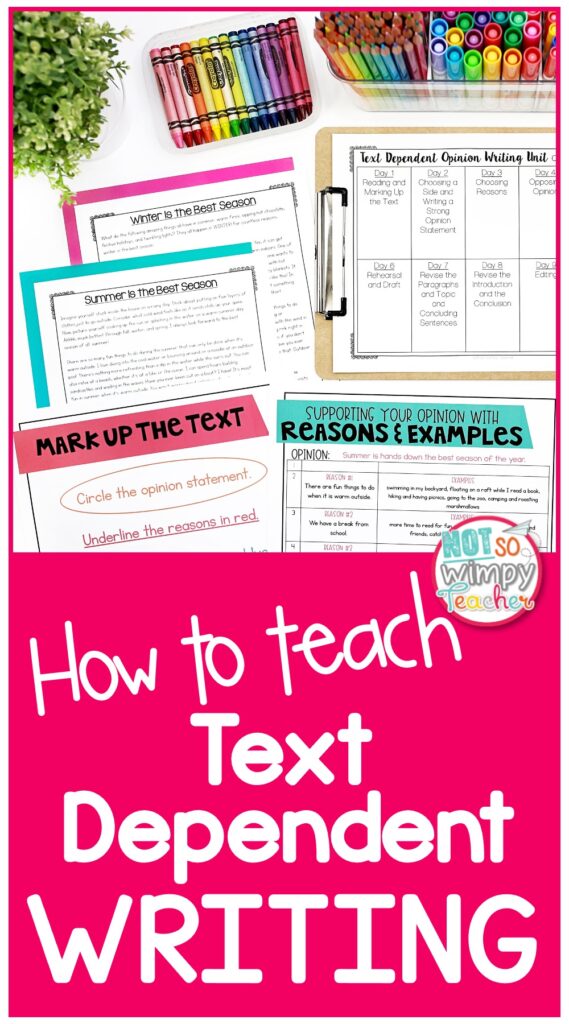
I hope this post sets your mind at ease and gives you some concrete strategies for how to teach text dependent writing.
Have a Not So Wimpy Day,


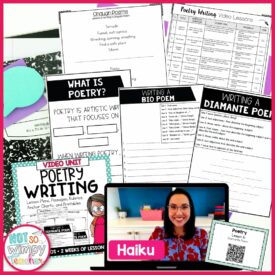


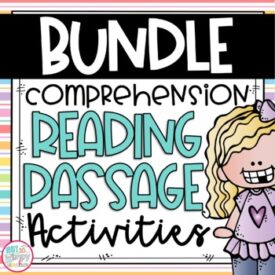
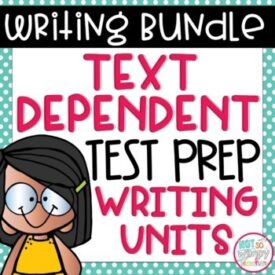
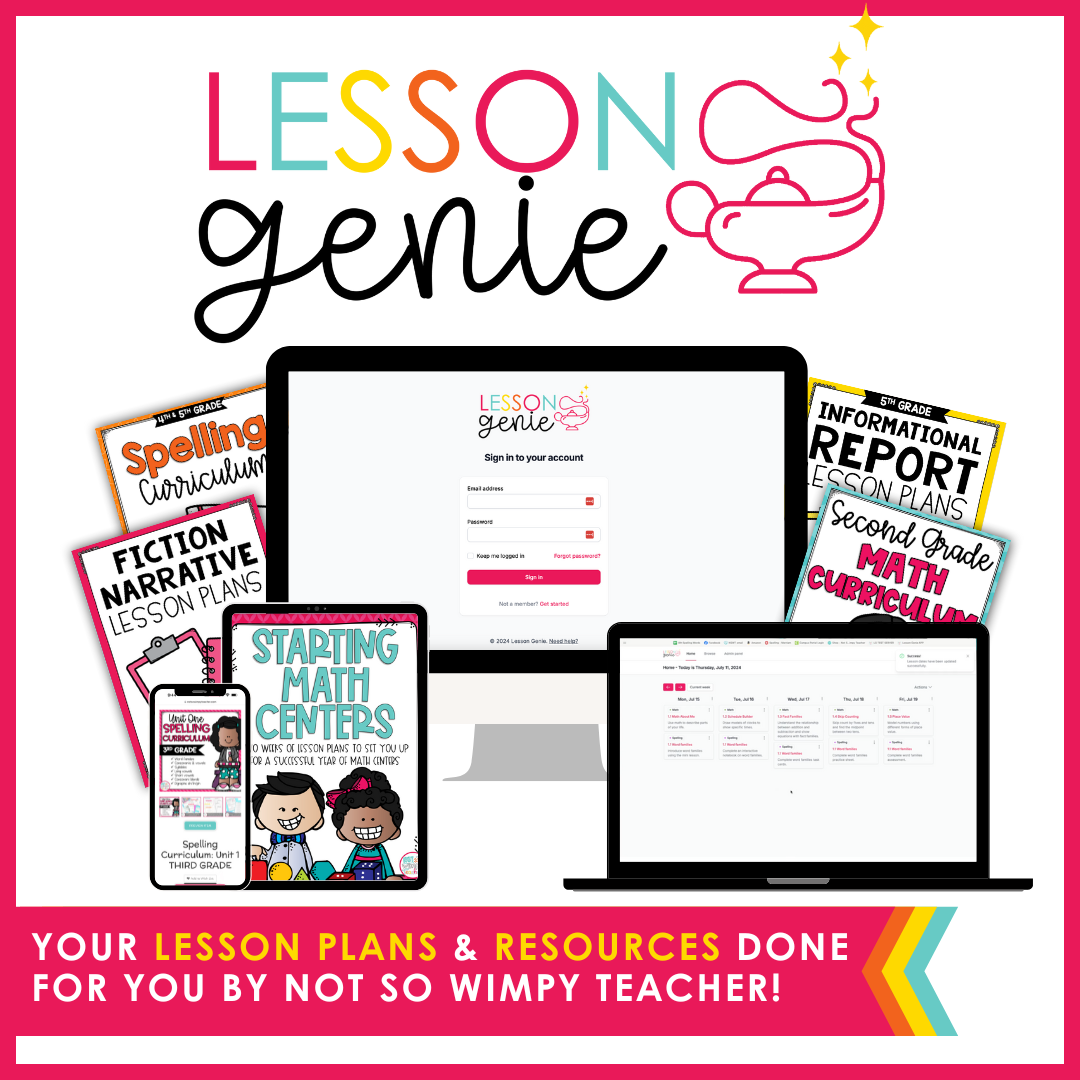
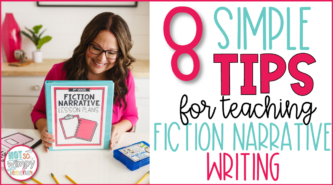
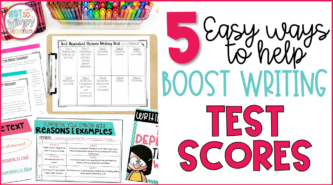
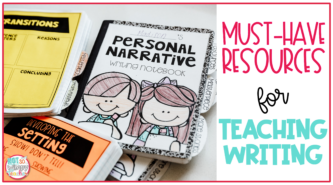
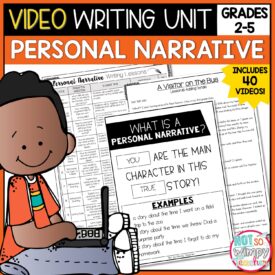
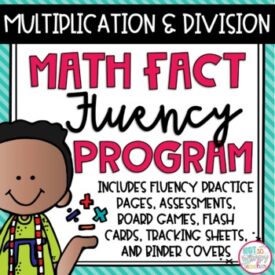
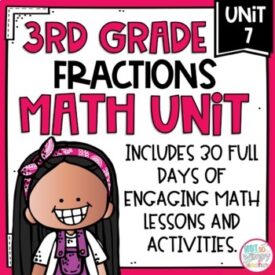
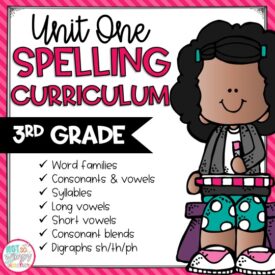
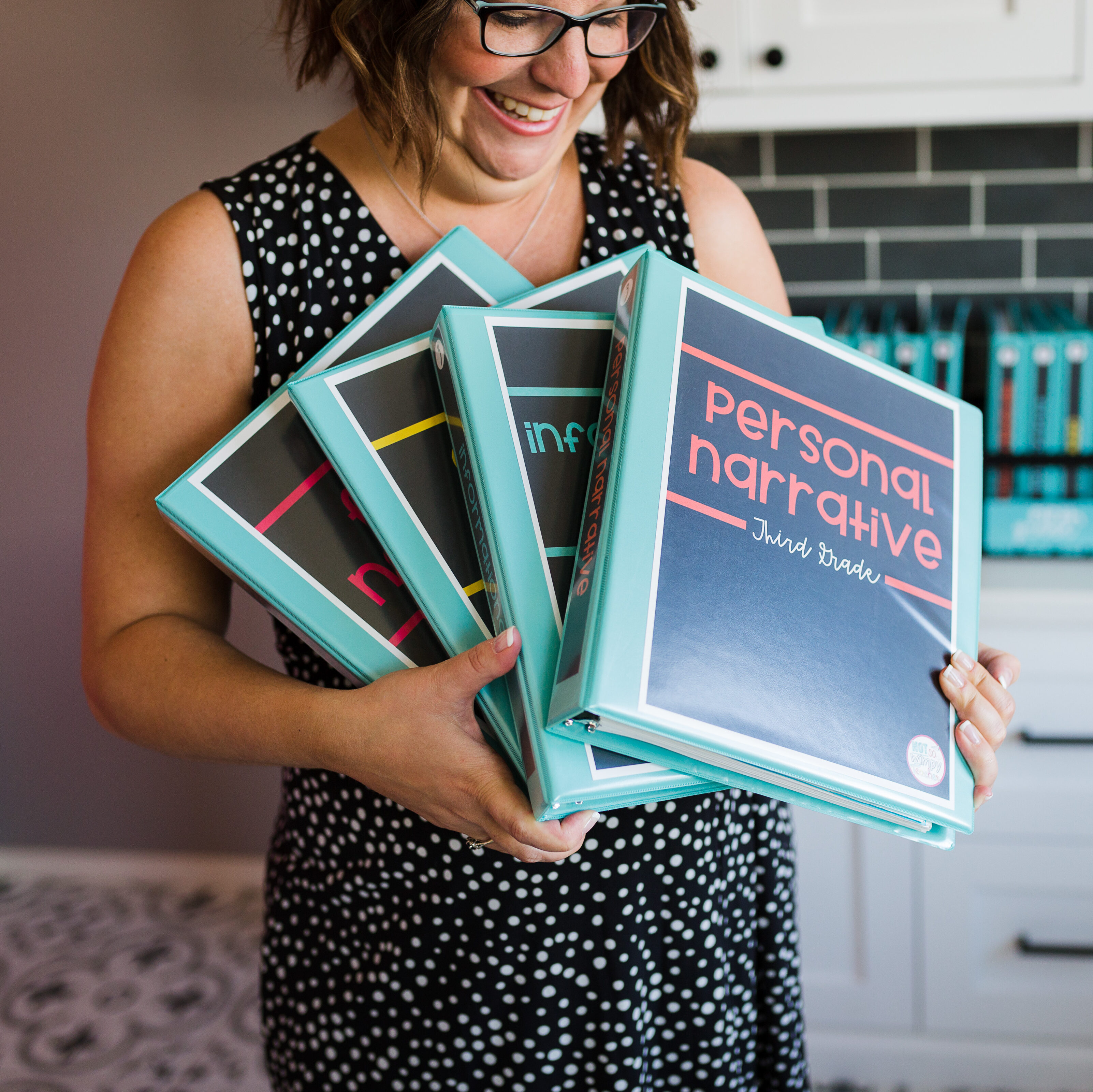

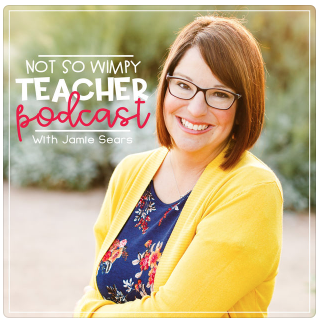




 End of Year Carnival Week for grades 2-5!
End of Year Carnival Week for grades 2-5!
I appreciate everything you have dealing with writing. Where I teach, we do not have a lot of support in how to teach writing and our requests go unnoticed so having this information is truly so helpful! I love that you have it broken down into units as well!
Hi Jamie,
Thank you so much for creating this fabulous writing bundle. It has everything needed for students to be successful in writing text-dependent essays. I especially appreciate that you offer small-group differentiation ideas for those students who need a little extra explanation and practice.
Thank again,
Michele